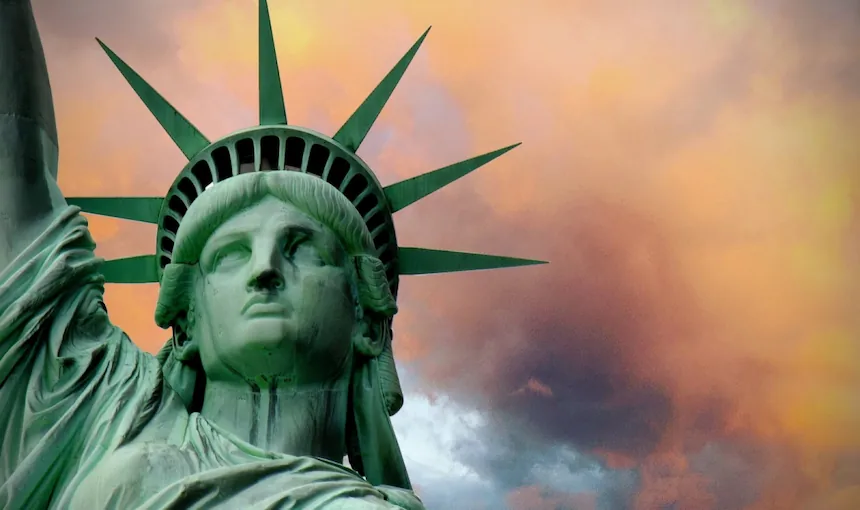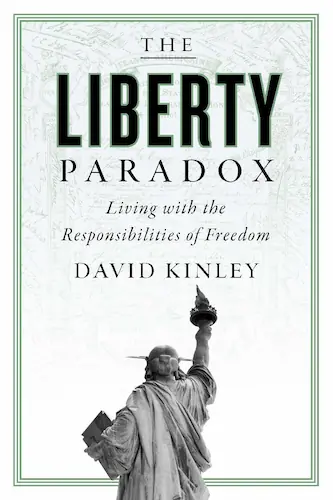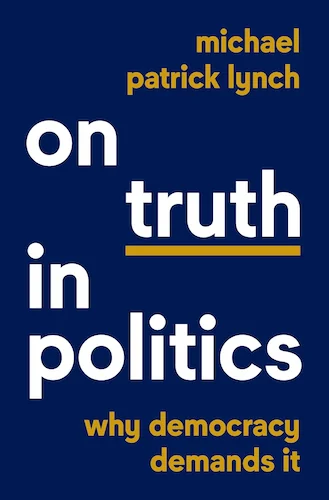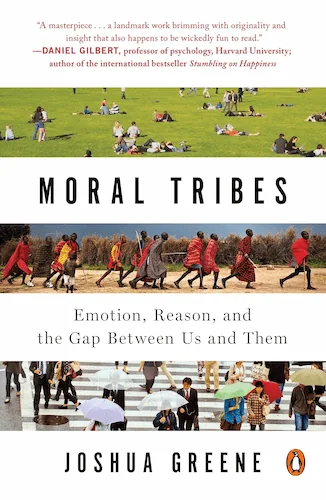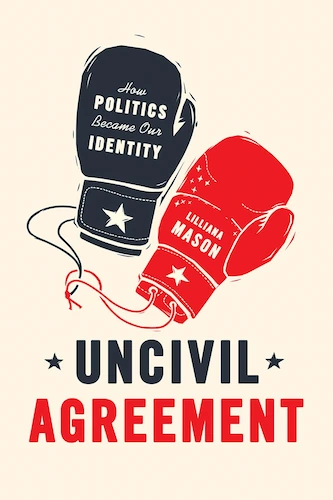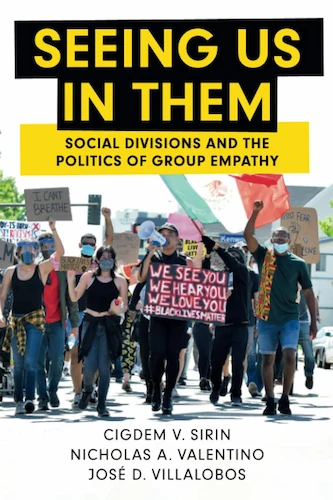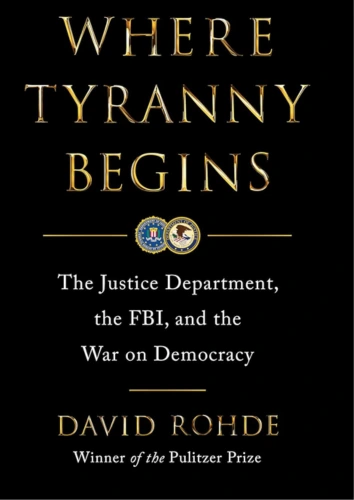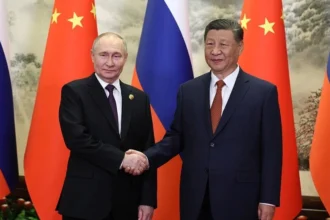The Paradox of Liberty: Freedom Versus Responsibility?
When I began writing The Liberty Paradox, I was seeking answers to two questions: Are we free to do whatever we want? And if not, why not? These ancient questions, it seemed to me, were in need of new answers. Or rather, as it turned out, old answers to fit new times.
- The Paradox of Liberty: Freedom Versus Responsibility?
- A Pandemic Unveils the Boundaries of Freedom
- Freedom Taken Too Far: From Choice to Chaos
- Weaponizing Free Speech: Hypocrisy and Power
- Tyranny in the Name of Liberty
- Ayn Rand and the Ethics of Selfishness
- Private and Public Forces in Shaping Liberty
- Liberty Under Siege: Lessons from History and Today
My central contention is that the conventional understanding of ‘liberty’ – comprising both freedom and responsibility – is today collapsing under the weight of claims of ‘freedom’ alone. The inherent component of responsibility in the notion of liberty is what constitutes its apparent paradox.
A Pandemic Unveils the Boundaries of Freedom
I began the project in earnest just as the first murmurings of a new flu-like virus were emerging out of China and a few international travel alerts were being issued. It was January 2020 and I was in Nepal on a two-week field-trip with 30 law students, some of whose return flights to Sydney were being cancelled or rerouted.
These minor inhibitions on their freedom of movement were of course harbingers of the extraordinary worldwide incursions on individual freedom that were to ensue over the years that followed, providing me with a monumental, real-time case-study of how we navigate personal freedoms in the face of public responsibilities.
Questions about how free we are and ought to be, were brought into focus especially sharply during the COVID-19 years, but there are in fact questions that confront us every day across the myriad of activities, interactions, and thoughts that occupy our waking hours. Some are framed in formal, rule-bound terms – proscribed criminal activities, tax laws, and road rules.
Others are negotiated informally through socialised norms and expectations – one’s chosen hobbies, lovers or fashion, as well as standards of public behaviour when having fun with friends or interacting with strangers. And for many more, the format is some combination of the two – guarding one’s privacy and family life or exercising freedoms of speech or religion.
Freedom Taken Too Far: From Choice to Chaos
Extreme proclamations of freedom – what I call ‘absolute’ or ‘extreme’ freedom in the book – provide the clearest illustrations of the dire consequences for societies at large and for all individuals within them, including those making the extreme claims. Plato referred to such circumstance as an “excess of freedom”, whereby the “exclusive love of freedom and regardlessness of everything else, is the cause of the change from democracy to tyranny.”
Selfishness writ large is what leads us toward tyranny, whereby freedom’s message is reduced to an edict proclaiming not merely that it’s OK to be selfish but that it’s right and proper for all of us to be so. Whatever you want to do or say, you can and should be free to do or say. As, equally, you should be free from being pressured or compelled to do whatever you don’t want to do. You’re free – so this reasoning goes – to choose whether you wear a mask or be vaccinated during a pandemic, and because everyone is free to choose, so no one is deprived.
It’s a twisted logic that goes little further than first base, ignoring – or rather more typically, disregarding – what happens when freedom claims clash. That is, when individuals make claims that contradict those of others or that conflict with wider public interests (the two categories being much the same, as the fair resolution of opposing claims between individuals is also in the public interest). But going beyond first base is not the intention of such rhetoric.
Weaponizing Free Speech: Hypocrisy and Power
Far right, so-called libertarian, sloganeering is designed to offer entitlement at no cost. It is a license to be selfish – to do what you want – while simultaneously denying the same license to those with whom you disagree or simply dislike. Elon Musk provided a perfect example of this when, during a Trump rally in Pennsylvania in early October 2024, he warned that Democrats “want to take away your freedom of speech,” adding that “you must have free speech in order to have democracy.”
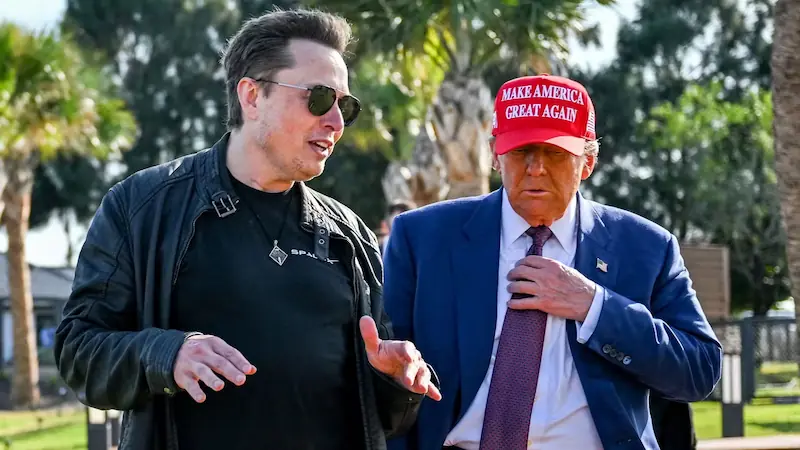
The hypocrisy of such an admonition in the face of Donald Trump’s decades-long campaign to silence anyone who disagrees with him by threats of violence, intimidation, lawsuits, and insults, is so gauche as to be ridiculous. “Trump says free speech is only for people he likes,” as The New Republic summed up a speech Trump delivered two weeks later at an 11th Hour Faith Leaders Meeting in North Carolina. Or as a characteristically exasperated Jon Stewart put it on his Daily Show, “it’s not free speech if only Trump’s admirers get to do it without consequence; that’s not how it works!”
The trick is to recognize the would-be tyrant’s subterfuge and one’s own blindness before it is too late and what was potential becomes actual tyranny.
It is, of course, possible that such partisanship is seen for the sham that it is by its protagonists, the purpose being not to engage in rational argument but rather to “flood the zone with shit,” as Steve Bannon openly admits. And in Elon Musk, Trump has found an exuberant accomplice, more than happy to use his ownership of X as “a machine,” in Charlie Warzel’s words, “retrofitted to poison the information environment by filling it with dangerous, false, and unsubstantiated rumors about election fraud that can reach mass audiences.”
Either way, the impact of such rhetoric is both overtly and insidiously malign. It invokes the tyrant’s time-honoured lie of promising freedom without responsibility, whereby freedom is exercised by the despot and responsibilities borne by everybody else. It is, in short, “fascist to the core,” as Mark Milley, a chair of the Joint Chiefs of Staff under Trump, characterized his former boss.
Tyranny in the Name of Liberty
As I illustrate in the book, human societies have a long history of autocrats commandeering the terminologies of freedom and liberty for ends that only benefit them, not their people. From Caligula and Alexander the Great, to Hitler and Stalin, the allure of freedom has been ruthlessly exploited.
I don’t see private (or at least non-public) supervision of liberty as irrelevant.
Stalin, for example, blithely told one American journalist in 1936, “we did not build this society in order to restrict personal liberty but in order that the human individual may feel really free” (p.24), thereby underlining Plato’s dire warning that loving freedom too much blinds us to the ulterior motives of tyrants who promise to protect it (p.18).
The trick is to recognize the would-be tyrant’s subterfuge and one’s own blindness before it is too late and what was potential becomes actual tyranny.
Ayn Rand and the Ethics of Selfishness
But for those with grievances (and who among us is free of them?) and a healthy respect for one’s self, the task is neither easy nor, for many, welcome. Being given permission to be selfish under the noble banner of freedom seems to be both a much easier and more appealing option.

Russian-born, American philosopher Ayn Rand promoted and popularised the notion in her work in the 1960s, elevating what she called “rational selfishness” to nothing less than the defining feature of human civilization. To think otherwise, she argued, is to degrade one’s sense of self-respect.
Any “attack on ‘selfishness’ is an attack on man’s self-esteem; to surrender one, is to surrender the other,” she declared (p.7).
It was, or at least can be, powerful and intoxicating stuff, as Rand’s reasoning certainly tries to round all bases. In the end, however, it fails to convince.
Her appeal to a set of ‘objectivist ethics’ as the tool by which to ensure that our self-interested pursuits are ‘rational’ may appear to correspond somewhat with my freedom/responsibility binary.
But Rand’s answer to the foundational question of who constructs, curates, and adjudicates these ethical responsibilities is fundamentally deficient. She effectively rules out the government (her antipathy toward the prevailing totalitarianism in her motherland inspired her rejection of all but the most minimal interferences in people’s lives by the state), famously preferring instead the machinations of interactions between individuals in a free-market economy as the arbiter of what is rational.
Private and Public Forces in Shaping Liberty
In the book I explore both private and public means of superintending liberty across a welter of meta as well as fine-grained interpersonal interactions. Gun ownership and use, for example, is governed more by legal obligations than by social mores (but the latter still play a part).
Whereas, expressions of sexual or religious preferences are corralled more by societal expectations than by law (though the latter still plays a part). One’s freedom to choose the moment and means of one’s death lies somewhere in between, being both almost wholly free (suicide) or strictly regulated (the proscription of euthanasia), depending on one’s circumstances. To be sure, therefore, I don’t see private (or at least non-public) supervision of liberty as irrelevant.
Nevertheless, I argue that no matter how inexorable such private mediations on the boundaries of freedom and responsibility are, the state must be the ultimate or decisive arbiter. It is the state we must trust to set the outer boundaries and to settle the most protracted or intensely disputed claims. Albeit – and this is elemental – that such communal trust is or should be bestowed on agencies of the state only where it is warranted. In democracies this means, at its barest, accepting the “cardinal principle … that people trust one another and that together they entrust their collective will to representatives who govern in their name,” (p.273).
More substantially, however, it also “presumes broad consensus on moral notions of right and wrong, support for utilitarian considerations of fairness and equity, and faith in rational argument as the means of debate and dispute settlement. Each and all of these features are necessary for a well-ordered society built on trust and sustained by liberty.” For “[t]rust is the glue that binds us to one another. It is the foundation of friendships, families, and love affairs, as well as communities, constitutions, and churches,” (p.273).
Liberty Under Siege: Lessons from History and Today
These fundamental tenets of socially contractarian government have, for centuries, been continually tested, stretched, and destroyed. Such challenges persist today with liberty, as always, being a prime casualty. To that extent, therefore, one may be tempted to intone plus ça change and carry on.
But the second Trump administration’s dismantling of the institutions of democratic governance in the US, its corruption of the rule of law, and its Alice in Wonderland assault on truth and rationality, are liberty-eviscerating road wrecks one cannot look away from.
History, reliably, offers us lessons. None more tellingly prescient than Bertrand Russell’s rueful observations on the origins of fascism, delivered in 1942:
“The first step in a fascist movement is the combination under an energetic leader of a number of men who possess more than the average share of leisure, brutality, and stupidity. The next step is to fascinate fools and muzzle the intelligent, by emotional excitement on the one hand and terrorism on the other.”
Russell knew then that this was no hyperbole. We should not suppose any differently today just because we are looking at the presumptive leader of the free world. For “the last shadow of liberty quits the horizon,” as Thomas Paine warned us exactly 250 years ago, “when men yield up the privilege of thinking.” This quotation also serves as the epigraph to The Liberty Paradox.


